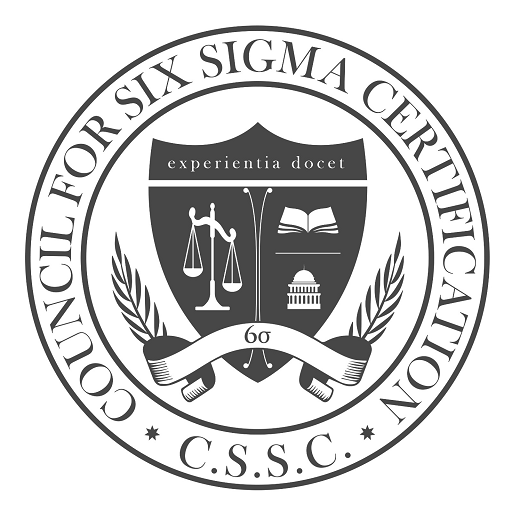
Lean consultant in India
Lean consultant in India In an increasingly competitive business environment, organizations are constantly seeking ways to enhance efficiency and optimize operations. Lean consultants, with their expertise in Lean methodologies, play a pivotal role in this pursuit by helping organizations reduce waste and maximize value. This blog delves into the role of Lean consultants, the benefits they offer, and the core principles and techniques they employ to drive continuous improvement.
The Role of a Lean Consultant
Lean consultants are professionals who specialize in implementing Lean principles—methodologies developed to streamline processes and enhance efficiency. Initially created for the manufacturing sector by Toyota, these principles have proven to be effective across various industries. Lean consultants work closely with organizations to identify inefficiencies, eliminate waste, and improve processes.
They begin by conducting a thorough analysis of current workflows and processes, pinpointing areas that require improvement. Lean consultants collaborate with employees at all levels, from executives to front-line workers, ensuring that Lean principles are integrated into the organizational culture. They provide essential training, support, and guidance throughout the transformation process to ensure sustainable results.
The Benefits of Engaging a Lean Consultant
1. Enhanced Operational Efficiency
Lean consultants help organizations streamline their operations by identifying and removing non-value-added activities. This leads to significant efficiency gains, allowing businesses to accomplish more with the same or fewer resources.
2. Cost Savings
A primary goal of Lean is to minimize waste, which includes excess inventory, overproduction, waiting times, and defects. Lean consultants help organizations identify these waste areas and implement strategies to reduce or eliminate them, resulting in substantial cost savings.
3. Improved Quality
Lean methodologies emphasize quality at every stage of production. Lean consultants assist organizations in establishing robust quality control systems, reducing defects, and enhancing overall product or service quality. This leads to higher customer satisfaction and lower costs associated with rework and returns.
4. Increased Employee Engagement
Lean consultants promote a culture of continuous improvement and employee involvement. By empowering employees to identify and solve problems, organizations can leverage their collective expertise and creativity, resulting in better solutions and increased job satisfaction.
5. Enhanced Customer Satisfaction
By focusing on activities that add value to customers and eliminating those that do not, Lean consultants help organizations better meet customer needs and expectations. This leads to higher levels of customer satisfaction and loyalty, which are crucial for long-term success.
Core Principles of Lean
Lean consultants base their approach on several key principles:
1. Value
The first principle of Lean is to define value from the customer’s perspective. This involves understanding what customers truly value and ensuring that all activities and processes are aligned to deliver that value effectively.
2. Value Stream
A value stream includes all activities required to deliver a product or service. Lean consultants map out the value stream to identify waste and inefficiencies, providing a clear roadmap for process improvements.
3. Flow
Creating a smooth, uninterrupted flow of work through the value stream is a core Lean objective. Lean consultants work to eliminate obstacles and ensure that processes move seamlessly from one stage to the next.
4. Pull
Lean emphasizes a pull-based system, where production is driven by actual customer demand rather than forecasts. Lean consultants help organizations implement pull systems, such as Kanban, to synchronize production with demand, reducing the risk of overproduction and excess inventory.
5. Perfection
The pursuit of perfection is an ongoing process in Lean. Lean consultants encourage organizations to strive for continuous, incremental improvements, fostering a culture where excellence is always the goal.
Essential Lean Tools and Techniques
Lean consultants utilize a variety of tools and techniques to drive process improvements:
1. 5S
5S stands for Sort, Set in order, Shine, Standardize, and Sustain. Lean consultants help organizations implement 5S to create organized, efficient workplaces, improving productivity and safety.
2. Value Stream Mapping
Value stream mapping is a visual tool used to analyze and optimize the flow of materials and information. Lean consultants use this tool to identify waste and develop strategies for process improvement.
3. Kaizen
Kaizen means “continuous improvement” in Japanese. Lean consultants facilitate Kaizen workshops where employees collaborate to identify and implement process enhancements.
4. Kanban
Kanban is a visual scheduling system that helps manage work-in-progress and ensures production is driven by actual demand. Lean consultants assist organizations in implementing Kanban to improve workflow and reduce lead times.
5. Root Cause Analysis
Root cause analysis is a problem-solving method used to identify the underlying causes of issues. Lean consultants use techniques such as the “5 Whys” and fishbone diagrams to uncover root causes and develop effective solutions.
6. SMED
Single-Minute Exchange of Die (SMED) is a Lean tool used to reduce setup times in manufacturing processes. Lean consultants help organizations implement SMED to enable faster changeovers and increase production flexibility.
Real-World Impact: Case Studies
Manufacturing Sector
A mid-sized manufacturing company faced high production costs and lengthy lead times. A Lean consultant conducted a comprehensive value stream analysis, identifying inefficiencies such as excess inventory and suboptimal production scheduling. By implementing Lean tools like Kanban and 5S, the company achieved a 30% reduction in lead times, a 25% decrease in inventory costs, and significant quality improvements.
Healthcare Sector
A hospital struggled with patient flow and long emergency department wait times. A Lean consultant utilized value stream mapping and facilitated Kaizen workshops to identify and address bottlenecks in patient processing. The result was a 40% reduction in patient wait times and enhanced patient satisfaction.
Conclusion
Lean consultants are crucial for organizations aiming to achieve operational excellence in a competitive business environment. By leveraging Lean principles and tools, they guide companies in eliminating waste, enhancing efficiency, and delivering greater value to customers. Whether in manufacturing, healthcare, or other industries, Lean consultants drive significant and sustainable improvements, leading to increased productivity, cost savings, and customer satisfaction.
![]()

